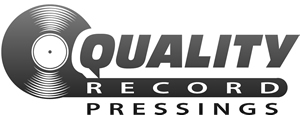D.D.W., SMT, IES
Bill Westermann, founder and President of the three corporations, holds a degree in Engineering from the University of Illinois. He was employed by Ford Motor Company in Dearborn, Michigan, for two years as a manufacturing engineer. After soon concluding that was not a good way of getting rich quickly, he decided to try something else and chose law school, entering Vanderbilt University School of Law School, Nashville, Tenn., in 1962 (graduating high in his class in 1965 and soon after being admitted to practice in Tenn. And Fl). Not being well financed, meaning no finances, he took several summer and part time jobs, the last of which, in the spring of 1965, was a commercial arrangement as an employee of Southern Plastics, one of the owners Southern Plastics, the top record manufacturer in Nashville. The sole purpose of that arrangement was to develop completely automatic record manufacturing machinery for Southern Plastics.
Less than a year later came D.D.W., INC., the first of the three entities mentioned above. Westermann was the president and founder but then not a controlling shareholder. D.D.W.,INC., proceeded to design and produce an advanced extruder, a specially designed machine that served as the first step to the fully automatic press. The extruder, SURE-SHOT, was immediately popular in non-automatic record manufacturing, selling all over North America, the Caribbean and South America. D.D.W then automated existing manually operated presses, as that equipment was not really suitable for the record industry in general due to the limitations of the manual presses. Manual presses were later abandoned.
Later came SMT, which designed and developed a dual cavity 7” (45) automatic machine utilizing the more common and better “4 post” press and then the 12” (LP) version for the “4 post” press. These became the world leaders in record manufacturing and are featured in the accompanying videos and literature.
The three entities, with Westermann as president, developed a very effective manufacturing capability to produce the equipment, most of that well placed, just between and about a block away from the two largest record pressing plants in Nashville, Southern Plastics (soon after to be owned by United Record Pressing) and Dixie Record Pressing.
Of necessity, because of the many complex and expensive processes used to make the parts for the machines, almost all the parts were made by outside suppliers (“outsourced,” but all in the United States). This was the most efficient, flexible and best way to manufacture these complex and varied machines. All but a few of the assembly operations were performed at the location mentioned above.
It must be pointed out that the following two very talented people did an outstanding job of conducting the procurement and assembly functions of SMT:
Robert Hays, General Manager-Production, was at SMT early on. Bob had a distinguished career as an Air Force Officer and many years experience in equipment fabrication, maintenance and quality control.
Lebert (Zeke) Davenport, was in charge of all procurement activities, shipping and receiving, mechanical drafting activities and cataloging and maintaining the numerous plans, drawings and part prints required for production of all the machinery and was always on hand and in charge of the critical and exacting assembly of the “ACCU-MOLD” presses at the huge machining complex that made the parts.
Many thanks to Chad Kassem and Quality Record Pressings for recognizing SMT and related companies, and me, and putting this information on the Net.
- Bill Westermann

